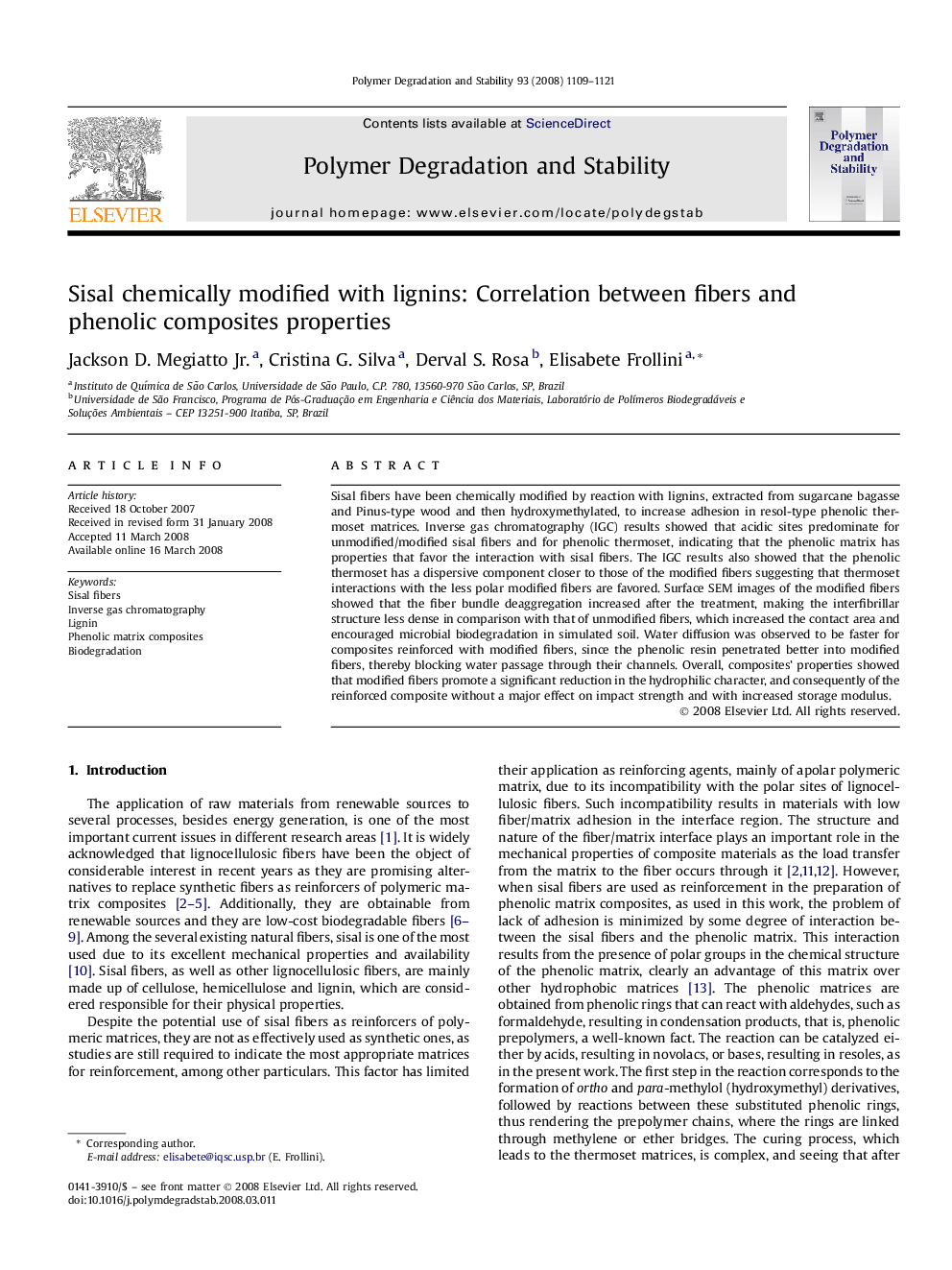| Article ID | Journal | Published Year | Pages | File Type |
|---|---|---|---|---|
| 5203884 | Polymer Degradation and Stability | 2008 | 13 Pages |
Sisal fibers have been chemically modified by reaction with lignins, extracted from sugarcane bagasse and Pinus-type wood and then hydroxymethylated, to increase adhesion in resol-type phenolic thermoset matrices. Inverse gas chromatography (IGC) results showed that acidic sites predominate for unmodified/modified sisal fibers and for phenolic thermoset, indicating that the phenolic matrix has properties that favor the interaction with sisal fibers. The IGC results also showed that the phenolic thermoset has a dispersive component closer to those of the modified fibers suggesting that thermoset interactions with the less polar modified fibers are favored. Surface SEM images of the modified fibers showed that the fiber bundle deaggregation increased after the treatment, making the interfibrillar structure less dense in comparison with that of unmodified fibers, which increased the contact area and encouraged microbial biodegradation in simulated soil. Water diffusion was observed to be faster for composites reinforced with modified fibers, since the phenolic resin penetrated better into modified fibers, thereby blocking water passage through their channels. Overall, composites' properties showed that modified fibers promote a significant reduction in the hydrophilic character, and consequently of the reinforced composite without a major effect on impact strength and with increased storage modulus.
